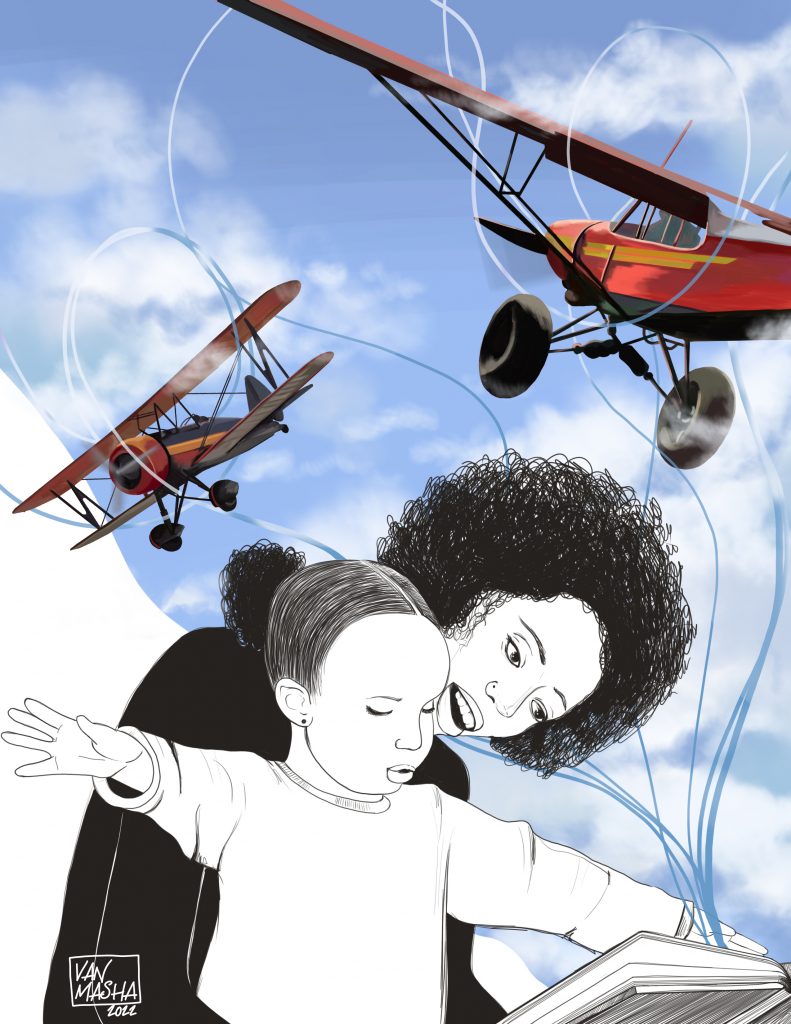My childhood was full of stories. From the moments with my family on trips abroad to reading stories at school, storytelling encompassed it all. As I grew older, storytelling became evermore integral to my life, especially in school, conversations, and tutoring. The ability to craft narratives by integrating your own experiences along with the ones around me brought power to storytelling. It created an immersive environment, one that was dynamic and entertaining. It nurtured my imagination and pushed me to create more stories of my own. What I realized is that stories could be anything – life’s moments, fictional narratives, or even just my day.
Storytelling is important in both our daily lives and in our careers. In our daily lives, storytelling is an excellent way for people to “make sense of their experiences, claim identities” and more (Angellier and Peterson). When we hear stories in our daily lives, whether that be in a classroom or in a conversation with a friend, we start seeing a world different from our own. This in itself breeds empathy as we connect and learn about various experiences. Storytelling also nurtures another crucial skill: listening. When we hear stories, we learn to listen, understand, ask questions, and connect, which can, in turn, spark our own stories. Especially in new environments, storytelling is an easy method to describe ourselves or share snippets of our lives as we form new connections. Storytelling is a universal way to express life lessons and morals so that we can find people who share the same values as us as we foster relationships. With this, storytelling has physical benefits such as improved memory, stretching one’s imagination to be creative, destress, and more (“10 Ways Storytelling Provides Mental and Physical Health Benefits”).

Another one of the benefits of storytelling is evident in professional life, specifically in careers. For instance, storytelling in healthcare about a patient’s experience “can memorably illustrate improvements or problems in a care pathway” (“The Power of Storytelling”). Shaping the right story can help creatively point out problems and solutions that could help better experiences in many career fields. In fact, “‘Storytelling approaches help us inform debate and discussion, raise awareness of the work of our grant holders and people we work with as well as help bring key issues to life.’ says Cathy Irving, Director of Communications at the Health Foundation” (“The Power of Storytelling”). Instead of simply speaking about a problem, storytelling is a powerful tool to help birth conversations required to make a change and convince people to notice urgent causes. In addition, storytelling is essential in business. When marketing products, it’s important to communicate key messages and values to consumers to convince them to buy the item. This could efficiently be done through storytelling as it can create an atmosphere relatable for consumers. When consumers are able to see why a product is resourceful for their own life rather than just hearing statistics, they are logically more prone to invest in it. The payoffs of this are evident in statistics: “If people love a brand story, 55% are more likely to buy the product in future, 44% will share the story, and 15% will buy the product immediately” (“6 Stats That Show Why Storytelling is Crucial for Your Content Marketing Strategy”).
Overall, storytelling has been a universal way to form connections and develop skills such as communication, listening, and empathy. Being able to speak to the hearts and minds around you is important, and storytelling is a great way to do that. If you are looking for ways to improve your storytelling abilities, practice storytelling in your everyday life, from normal conversations to interviews. Find solutions to unique problems in any club, organization, or cause you may be working for. Journal about topics that are interesting for you and practice free-writing for five minutes. Read more novels to help broaden your horizons. All these methods and more can help you develop your own beautiful narratives unique to your life.
References:
- Angellier, Kristin L., and Eric E. Peterson. “Storytelling in Daily Life.” Temple University Press. Last modified January 4, 2004. https://tupress.temple.edu/book/20000000008433.
- “6 Stats That Show Why Storytelling is Crucial for Your Content Marketing Strategy.” Nutcracker | Award-winning Creative B2B Marketing Agency in London. Accessed August 22, 2022. https://www.nutcrackeragency.com/blog/content-marketing-and-seo/6-stats-that-show-why-storytelling-is-crucial-for-your-content-marketing-strategy.
- “The Power of Storytelling.” The Health Foundation. Accessed August 14, 2022. https://www.health.org.uk/newsletter-feature/power-of-storytelling.
- “10 Ways Storytelling Provides Mental and Physical Health Benefits.” Storii – Give the Gift of Stories. Last modified August 16, 2022. https://www.storii.com/blog/storytelling-mental-physical-health-benefits.























